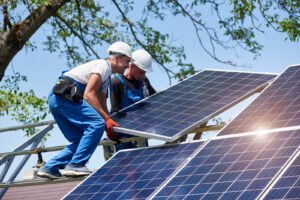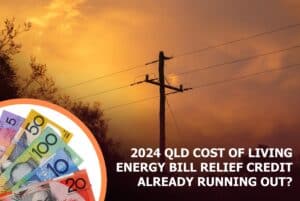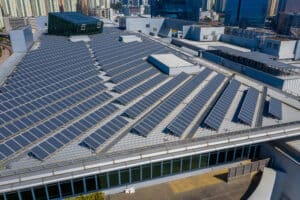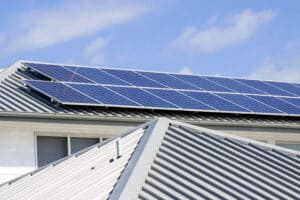At Sunrays Power, we’re all about helping you save energy and money while doing your bit for the environment.
The scorching Australian summer can be brutal on your energy bills, but with a few smart changes, you can keep your home cool without breaking the bank.
Conserving energy is important for those who have already installed solar, as smart home technology can help reduce grid electricity reliance and greatly reduce electricity bills.
Let’s dive into some practical energy-saving tips to keep you comfortable this summer.
Optimise your air conditioning
Choosing the right air conditioner (AC) for your space is a game changer when it comes to energy efficiency. An oversized unit will cool too quickly, not dehumidify effectively, and waste energy.
On the flip side, a unit that’s too small will run constantly, driving up your electricity bill.
Set your AC to a sweet spot between 24°C and 26°C. Every degree higher can save you about 5% to 10% on energy costs.
Clean or replace the filters regularly; clogged filters make the unit work harder and use more energy. Shading the outdoor unit can also help it run more efficiently, reducing the energy needed to keep your home cool.
Be mindful of how you use the AC. Frequently turning it off and on every few hours in an attempt to save energy can actually lead to higher energy consumption as more power is needed to cool the room down.
Remember, proper maintenance of your air conditioning system is crucial. Annual servicing can keep your unit running smoothly and efficiently throughout the summer.
Use ceiling fans wisely
Ceiling fans are an excellent companion to your air conditioner. They create a breeze that makes the room feel cooler.
Set your ceiling fans to rotate counterclockwise in summer. This will push the air down and create a wind chill effect. The fans don’t actually lower the room’s temperature but make you feel cooler, which can reduce your overall energy usage.
You can significantly lower your energy bills by combining ceiling fans with your air conditioning.
Seal and insulate your home
Sealing and insulating your home is one of the most effective ways to save energy during summer. Start by checking for drafts around windows and doors. These air leaks can let cool air escape and hot air in, making your air conditioner work overtime.
Use weather stripping or caulk to seal these gaps and keep your home airtight.
Proper insulation is key to maintaining a comfortable indoor temperature. Insulating your walls, roof, and floors helps keep the cool air inside and the heat out.
Investing in quality insulation can save you up to 15% on cooling costs and make a big difference in your overall electricity consumption.
Harness natural ventilation
Harnessing natural ventilation can be a simple yet effective way to keep your home cool and reduce energy use. During cooler nights, open your windows to let in fresh air.
This natural airflow can help lower the temperature in your home without relying on electrical devices.
Cross-ventilation is another great technique. By opening windows on opposite sides of a room, you create a natural breeze that can move through your home, pushing out the hot air and bringing in the cooler air. This method not only helps in reducing your reliance on air conditioning but also improves indoor air quality.
Use energy-efficient lighting
Switching to efficient lighting is one of the easiest ways to reduce your consumption and save money on your energy bills. LED bulbs are a fantastic option – they use significantly less energy and last up to 25 times longer. This means fewer replacements and lower lighting costs over time.
During the day, make the most of natural light to brighten your home. Open curtains and blinds to let in sunlight and reduce the need for artificial lighting, creating a pleasant and inviting atmosphere.
Manage your appliances
Managing your appliances can lead to significant energy savings. Unplug devices when they’re not in use to avoid standby power, also known as phantom loads, which can add up over time. This includes everything from phone chargers to game consoles and kitchen appliances.
When it’s time to upgrade, opt for energy-efficient appliances. Look for those with high energy ratings, as the higher the energy rating the less electricity is used. Using appliances such as washing machines and dishwashers on their cold water cycle and their economy/eco cycle can also save energy.
Wash clothes in cold water instead of hot, and always wait until you have a full load before running your washing machine or dishwasher.
Implement smart home technology
Smart home technology can make a difference in how efficiently you manage your energy use.
Smart thermostats
Allow you to control the temperature of your home remotely and set schedules that match your daily routine. This means your air conditioning only runs when needed, helping you save on electricity.
Smart plugs
Let you control the power usage of various devices from your smartphone. You can turn off appliances not in use or set them to operate during off-peak times, reducing your overall electricity consumption. By integrating smart technology into your home, you can make energy-saving more convenient and effective.
Pool and a solar system
If you have a pool and solar panels installed, consider installing a pool pump timer. Set it to run only during peak sunlight hours to utilise solar energy instead of grid energy. This reduces your reliance on grid energy and significantly lowers your electricity costs.
Pool without a solar system
For households with a pool but no solar system, it’s still beneficial to use a pool pump timer. Set the timer to run during off-peak electricity hours, usually in the early morning or late evening. This can help reduce energy costs by taking advantage of lower electricity rates during these times
Solar system and an electric hot water system
Installing a timer on your electric hot water system can be very beneficial for homes with a solar system and an electric hot water system.
Set it to run during peak sun hours to maximise the use of your solar energy, which can significantly reduce your energy bill.
By adopting these smart home technologies, you can efficiently manage your consumption and take full advantage of renewable energy sources like solar power.
One of our clients experienced significant savings after installing a solar power system and connecting his electric hot water system to be on peak tariff, allowing it to run during the daytime when solar production is at its highest.
Before the installation, his total off-peak usage was 1015kWh for 90 days. After switching to solar, this usage dramatically reduced to just 100kWh for 30 days (which translates to 300kWh for 90 days). This represents a 70% reduction in off-peak usage, attributed entirely to the savings brought on by his solar system. With a 10kW inverter and a 5kW export limit, he effectively utilised 70% of his energy needs through free solar energy.
The financial impact was remarkable, as his electricity bill dropped from $596.99 in November 2023 to $0 in April 2024. This substantial reduction in grid electricity consumption not only demonstrates the financial benefits of solar but also highlights its potential to significantly cut household energy costs when used in conjunction with smart home technology.
Cook smart
Cooking smart can help you keep your kitchen cool and conserve energy. Avoid using ovens during the hottest part of the day, as they can heat up your home.
Consider covering pots and pans with lids to reduce cooking time and save energy. Or you could use microwaves, slow cookers, or even better, take the cooking outside and use the barbecue.
Shade your windows
Shading your windows can be a game-changer in keeping your home cool and reducing your reliance on air conditioning. Install window coverings such as blinds, curtains, or awnings to block out the sun’s heat during the hottest parts of the day. Thick, insulated curtains are particularly effective in reducing heat gain.
Additionally, consider planting trees or shrubs outside your windows. They provide natural shade and can significantly lower the temperature inside your home.
Schedule regular maintenance
Keeping your HVAC system in top shape is essential for maintaining energy efficiency and saving money on your energy bills. Regular maintenance ensures your system runs smoothly and effectively, reducing the energy needed to cool your home.
Start by checking and replacing filters regularly. Dirty filters force your system to work harder, increasing consumption. Also, make sure to schedule professional maintenance at least once a year. A professional can inspect your system, clean components, and fix any issues affecting its efficiency.
Regular maintenance not only helps save energy but also extends the life of your HVAC system, giving you more value for your investment.
Frequently Asked Questions
The ideal temperature is around 24-26 degrees Celsius. This temperature maintains comfort and efficiency, reducing energy costs.
Check for drafts around windows and doors and seal any gaps. For optimal results, consider professional insulation services, particularly for walls, roofs, and floors.
Yes, smart home devices like thermostats and plugs can significantly enhance energy efficiency and convenience, helping you manage energy consumption more effectively.
Use energy-efficient appliances, unplug devices that are not in use, use LED bulbs, and use natural light during the day. Implementing these tips can help reduce your energy consumption and lower your electricity costs.
To keep your HVAC system running efficiently, it’s recommended that you schedule professional maintenance at least once a year and regularly check and replace filters.
Yes, ceiling fans can make a room feel cooler, allowing you to set your air conditioner at a higher temperature and reduce overall energy use.
How to reduce your energy consumption this summer
- Audit your home: Check for drafts, outdated appliances, and inefficient lighting.
- Upgrade air conditioning: Choose the right size unit, set it to 24-26°C, clean filters, and shade the outdoor unit.
- Use fans: Install ceiling fans, set them to rotate counter-clockwise, and use them with your air conditioner.
- Seal and insulate: Seal gaps and insulate walls, roofs, and floors.
- Maximise ventilation: Open windows at night for fresh air and create cross-ventilation.
- Energy-efficient lighting: Use LED bulbs and take advantage of natural light.
- Manage appliances: Unplug devices that are not in use, use economy cycles, and opt for energy-efficient models.
- Smart technology: Use smart thermostats and plugs to control and schedule energy use.
- Cook smart: Avoid ovens during the hot part of the day; use microwaves, slow cookers, or outdoor grills and appliances.
- Shade your home: Install window coverings and plant trees or shrubs to block heat.
Stay cool and save energy this summer
Conserving energy during the summer doesn’t have to be a hassle. By adopting these energy-saving tips, you can keep your home comfortable, save money on your electricity bill, and reduce your carbon footprint.
From optimising your air conditioning and using ceiling fans wisely to sealing and insulating your home and harnessing natural ventilation, these simple changes can make a big difference.
Remember, Sunrays Power is here to help you with personalised solar solutions to complement your energy-saving efforts.
Contact us today to learn how we can support your journey towards a more energy-efficient and sustainable home.








